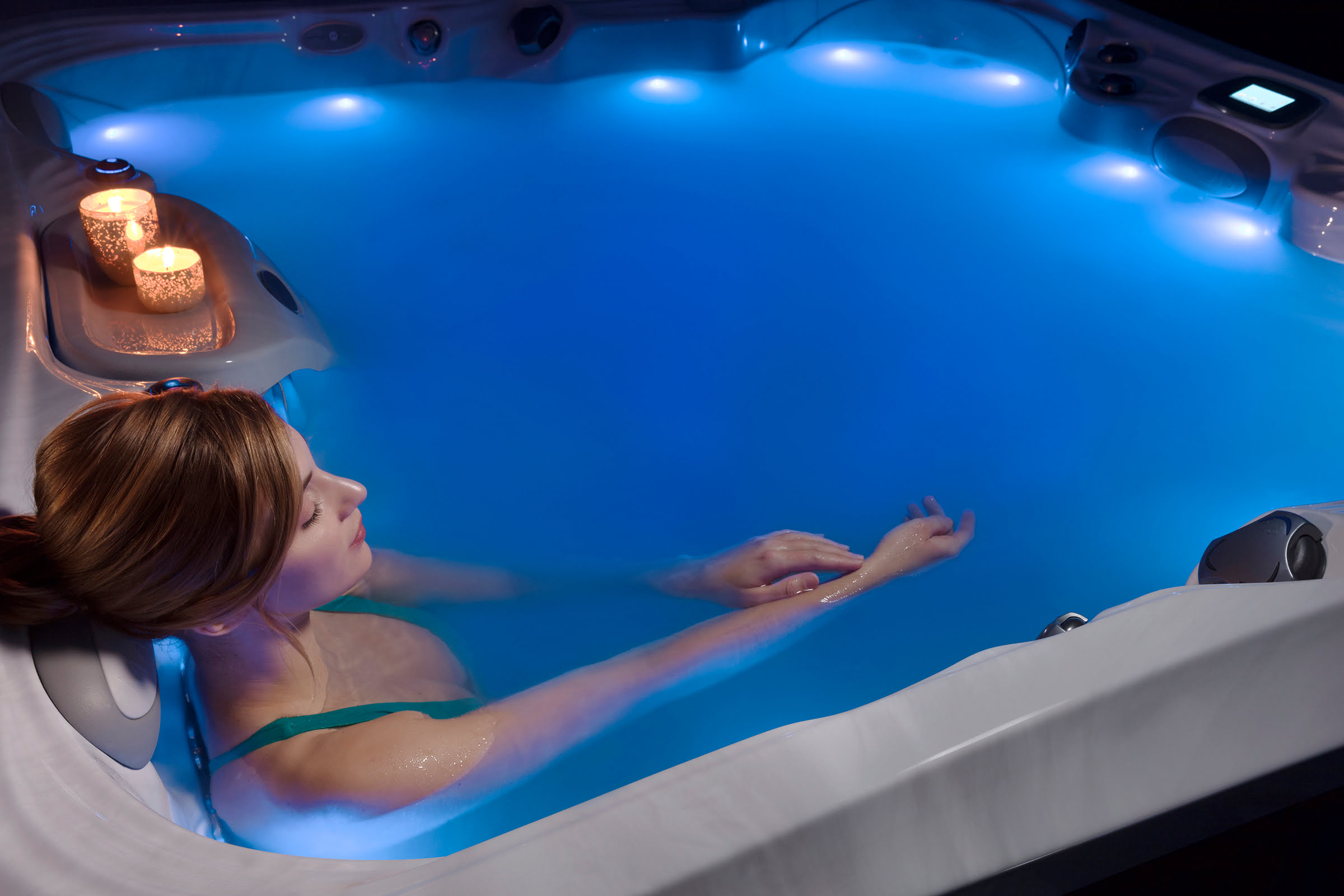Home>Furniture & Design>Bathroom Accessories>How Long Can You Stay In A Bathtub


Bathroom Accessories
How Long Can You Stay In A Bathtub
Modified: October 28, 2024
Discover the ideal bathroom accessories for a relaxing bath experience. Find out how long you can stay in a bathtub and create your perfect sanctuary. Explore now!
(Many of the links in this article redirect to a specific reviewed product. Your purchase of these products through affiliate links helps to generate commission for Storables.com, at no extra cost. Learn more)
Introduction
The bathtub has long been a sanctuary for relaxation and rejuvenation. Whether it's a quick soak to unwind after a long day or a leisurely bath to escape the hustle and bustle of daily life, the allure of a warm, inviting tub is undeniable. However, have you ever wondered how long you can safely stay in a bathtub? The answer to this question is influenced by various factors, including personal comfort, water temperature, and potential health risks.
When it comes to indulging in a soothing bath, it's essential to strike a balance between relaxation and safety. Understanding the factors that impact bathing time can help you make the most of your experience while prioritizing your well-being. From the temperature of the water to the potential health risks associated with prolonged soaking, there are several considerations to keep in mind when settling in for a luxurious bath.
As we delve into the intricacies of bathing duration, it's important to approach this topic with a holistic perspective. By exploring the physiological and psychological aspects of bathing, we can gain a deeper understanding of how to optimize our time in the tub. Additionally, we'll uncover practical tips for ensuring a safe and enjoyable bathing experience, allowing you to fully embrace the restorative benefits of this timeless ritual.
So, let's embark on a journey to unravel the mysteries of bathing duration and discover the art of striking the perfect balance between relaxation and well-being. Whether you're a dedicated bath enthusiast or someone seeking to enhance your self-care routine, this exploration will provide valuable insights to enrich your bathing experience.
Key Takeaways:
- Soak smart: Keep your bath between 92°F to 100°F for muscle relaxation and limit your time to avoid dehydration and skin irritation. Stay safe and enjoy your bath time!
- Bathing balance: Listen to your body, stay hydrated, and use gentle bath products. Set a time limit, take breaks, and prioritize safety for a rejuvenating and safe bathing experience.
Factors Affecting Bathing Time
The duration of a bath is influenced by a myriad of factors that collectively contribute to the overall bathing experience. Understanding these factors is crucial for optimizing the time spent in the tub while ensuring comfort and safety.
Water Temperature
The temperature of the bathwater plays a pivotal role in determining how long one can comfortably remain in the tub. Water that is too hot can lead to discomfort, excessive sweating, and potential dehydration. Conversely, water that is too cold may cause shivering and discomfort. The ideal water temperature for a relaxing bath typically ranges between 92°F to 100°F (33°C to 37.8°C). This temperature range promotes muscle relaxation and enhances the overall soothing effect of the bath, allowing for a longer and more enjoyable soak.
Personal Comfort
Individual preferences and comfort levels significantly impact bathing duration. Some people may find extended periods of soaking to be relaxing and therapeutic, while others may prefer shorter, more invigorating baths. It's essential to listen to your body and adjust your bathing time according to your comfort and relaxation needs. Factors such as stress levels, physical fatigue, and overall well-being can also influence how long one may wish to stay in the bath.
Bath Additives
The inclusion of bath additives, such as bath salts, essential oils, or bubble bath solutions, can affect the duration of a bath. These additives can enhance the sensory experience and contribute to relaxation. However, it's important to be mindful of the recommended usage guidelines for these products. Some additives, particularly those containing essential oils, may have specific time limits for safe exposure. Adhering to these guidelines ensures that the bath remains a source of rejuvenation without posing any potential risks.
Read more: How Long Can A Projector Stay On
Hydration
Prolonged exposure to warm water can lead to increased perspiration and potential dehydration. It's crucial to stay hydrated during and after a bath to maintain optimal well-being. Sipping water or keeping a refreshing beverage nearby can help counteract the effects of prolonged bathing, allowing for a more comfortable and extended soak.
Skin Sensitivity
Individuals with sensitive skin may need to limit their bathing time to prevent skin irritation or dryness. Prolonged exposure to water and certain bath products can strip the skin of its natural oils, leading to potential discomfort. Understanding one's skin type and its unique needs is essential for determining the appropriate bathing duration.
By considering these factors, individuals can tailor their bathing experiences to align with their preferences and well-being, ensuring that each soak is both enjoyable and beneficial.
Health Risks of Prolonged Bathing
Prolonged bathing, while often associated with relaxation and rejuvenation, can pose certain health risks if not approached mindfully. Understanding these potential risks is crucial for maintaining a safe and balanced bathing routine.
Dehydration
Extended periods of soaking in warm water can lead to excessive sweating, which may result in dehydration. The body's natural response to prolonged exposure to warm water is increased perspiration, leading to the loss of essential fluids and electrolytes. Dehydration can manifest as symptoms of dizziness, lightheadedness, and fatigue. To mitigate this risk, it's important to stay hydrated by consuming water before, during, and after a bath.
Overheating
Prolonged immersion in hot water can elevate the body's core temperature, potentially leading to overheating. This can cause discomfort, dizziness, and in severe cases, heat-related illnesses such as heat exhaustion or heatstroke. It's essential to monitor the water temperature and be mindful of the duration of the bath to prevent overheating. Taking breaks and allowing the body to cool down during a long soak can help mitigate this risk.
Skin Irritation
Excessive bathing, especially in hot water, can strip the skin of its natural oils, leading to dryness, irritation, and potential exacerbation of skin conditions such as eczema. Prolonged exposure to certain bath additives, such as heavily scented products or those containing harsh chemicals, can further irritate the skin. To minimize the risk of skin irritation, it's advisable to limit bathing time, use mild and moisturizing bath products, and apply a nourishing moisturizer after bathing.
Impact on Blood Pressure
The heat from prolonged hot baths can cause blood vessels to dilate, leading to a drop in blood pressure. While this effect can be beneficial for relaxation, individuals with low blood pressure or certain medical conditions should exercise caution to avoid feeling lightheaded or dizzy. It's important to be mindful of individual health considerations and consult a healthcare professional if there are concerns about the potential impact of prolonged bathing on blood pressure.
Infection Risk
Spending extended periods in bathwater, especially if the tub is not thoroughly cleaned, can increase the risk of bacterial or fungal infections. Stagnant water provides an environment conducive to microbial growth, potentially leading to skin infections or urinary tract infections. To mitigate this risk, it's essential to maintain a clean bathing environment and ensure proper hygiene practices before and after bathing.
By being aware of these potential health risks, individuals can approach their bathing routines with mindfulness and make informed decisions to prioritize their well-being while enjoying the restorative benefits of a soothing bath.
Read more: How Long Can Grass Stay On A Pallet
Tips for Safe and Enjoyable Bathing
-
Set a Time Limit: Establishing a reasonable time limit for your baths can help prevent the risks associated with prolonged soaking. Aim for a duration that allows you to unwind and relax without overstaying in the tub.
-
Monitor Water Temperature: Regularly check the water temperature during your bath to ensure it remains within the recommended range. This practice helps prevent overheating and ensures a comfortable and safe bathing experience.
-
Stay Hydrated: Keep a refreshing beverage nearby and take occasional sips to stay hydrated during your bath. This simple yet essential step can help counteract the effects of prolonged bathing and promote overall well-being.
-
Use Gentle Bath Products: Opt for mild and moisturizing bath additives to minimize the risk of skin irritation. Avoid heavily scented or harsh chemical-based products that may exacerbate skin sensitivity.
-
Practice Mindful Soaking: Pay attention to your body's signals and adjust your bathing time based on your comfort and well-being. Mindful soaking allows you to tailor each bath to your individual needs, promoting a more enjoyable and beneficial experience.
-
Take Breaks if Needed: If you plan to indulge in an extended bath, consider taking short breaks to cool down and prevent overheating. This practice can help maintain a comfortable body temperature and mitigate the risk of heat-related discomfort.
-
Clean Your Bathtub Regularly: Ensure that your bathtub is clean and free from any potential microbial growth. Regular cleaning reduces the risk of infections and creates a hygienic bathing environment.
-
Moisturize After Bathing: Apply a nourishing moisturizer to your skin after bathing to replenish moisture and maintain skin health. This step is particularly important after prolonged soaking to counteract any potential dryness.
-
Consider Aromatherapy: If you enjoy using essential oils or aromatherapy in your baths, familiarize yourself with safe usage guidelines. Some essential oils have recommended exposure limits to ensure a safe and enjoyable aromatic experience.
-
Prioritize Safety: Always prioritize your safety and well-being when indulging in a bath. Be mindful of any potential health concerns or sensitivities, and consult a healthcare professional if you have specific medical considerations.
By incorporating these tips into your bathing routine, you can create a safe, enjoyable, and rejuvenating experience that aligns with your individual preferences and well-being. Balancing relaxation with mindful practices ensures that each bath contributes to your overall self-care and rejuvenation.
Frequently Asked Questions about How Long Can You Stay In A Bathtub
Was this page helpful?
At Storables.com, we guarantee accurate and reliable information. Our content, validated by Expert Board Contributors, is crafted following stringent Editorial Policies. We're committed to providing you with well-researched, expert-backed insights for all your informational needs.













0 thoughts on “How Long Can You Stay In A Bathtub”